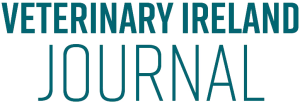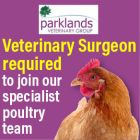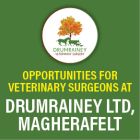UCD Research - November 2019
UCD summer research update
Alison Reynolds, assistant professor in veterinary biosciences, University College Dublin, provides an update on some of the research projects that students undertook this summer
Every year, some of the veterinary medicine and veterinary nursing undergraduates opt to carry out four-to-eight-week summer research projects. Students work with a clinical or pre-clinical supervisor to design a project on a topic that interests them. Research can be carried out at any stage during their degree, but it is most popular as part of a student’s clinical extramural studies (CEMS) placement in the summer after third or fourth year. Summer projects might involve working in a laboratory, developing and carrying out surveys, collecting samples from conservation areas, farms or parks, or performing an overview of the veterinary literature to learn more about a topic.

Front: Sloan Massie, Alex Klimovitz, Fiona Sahyoun and Laura Keogh. Back: Kate Toland, Lucy Wagstaff, Atiyah Bagha, Ellen Nugent, Maria Lagan, Luke Devlin and Alice Walsh.
Varied research
Undertaking a research project gives the students an opportunity to learn more about working in a research environment, giving them a better understanding of the research process and research methods employed. They develop skills of designing, conducting research and analysing their studies, whether they are lab based, or desk based. Participation in summer research projects encourages the students to see themselves not just as future veterinary professionals but also as researchers and investigative scientists.

Pictured at the Summer Student Research Awards 2019: Atiyah Bagha, winner of Silver Poster Award and Martha Crowe winner of the Bronze Award for Best Overall Project.
In 2019, 25 students completed a summer research project. While most students stayed in Ireland, some students travelled abroad. International projects ranged from working with Singaporean-based researchers on a bat conservation project in Cambodia to working with University of California (Davis) researchers on a project to describe bacterial infection in Pacific marine mammals. Closer to home, students worked with researchers in the University College Dublin (UCD) School of Veterinary Medicine, undertaking lab-based projects to examine antimicrobial resistance in free-range pigs and in mare-foal pairs; to learn about viral transmission and develop antiviral therapies; to develop a test to detect fragile foal syndrome; and to examine gut microbes of newly weaned pigs who have been fed prebiotics derived from seaweed extracts. Other projects included a study of the types of pathogens carried by seagulls and examining the prevalence of parasites and ticks in the Dublin area (including in exotic animals). Students carried out surveys to probe veterinarian knowledge of treating animal behaviour and questionnaires to examine knowledge of canine-related legislation. Students have the option to apply for research projects as part of the Professional Work Experience programme at the Department of Agriculture, Food and the Marine (DAFM). These projects involve working work with supervising vets at Agriculture House, at Backweston or at one of the regional veterinary laboratories.
Students present their work at national conferences (eg. Association for Veterinary and Teaching Research Work) and international conferences (eg. British Veterinary Zoological Annual Meeting) and one 2019 summer research project on veterinary behaviour medicine has already been accepted for publication. In September, 14 students from the school of veterinary medicine presented posters, along with 100 other students, at the Summer Student Research Awards in UCD. Fourth-year veterinary medicine student, Martha Crowe, was shortlisted and received a bronze award for her project on antimicrobial resistance in free-range pigs. Atiyah Bagha received a silver award for her poster describing tick prevalence in the Dublin area. We are very thankful to the philanthropic donations and grant agencies who sponsored the research as well as to all the supervising researchers who work with our students to make their summer research projects a success.
In association with


Alison Reynolds

Describing her experience of summer research, Martha Crowe writes: “Over the summer, instead of just doing clinical placements, I decided to try my hand at research. I spent a little over six weeks working with associate professor, Finola Leonard, on antimicrobial resistance (AMR) in free-range pigs, and I can honestly say that it’s been my favourite CEMS placement so far. I have always liked lab work and am hugely interested in AMR, so the prospect of driving around the country collecting pig poo was actually pretty appealing! From hunting down farms via the old reliable Google, to discovering that my first farm had a grand total of seven pigs with said pigs deciding that my wellies were for lunch, it was a blast from start to finish. Anyone else who was working in the lab at the time might not agree with me though; there’s nothing quite like the smell of faecal samples left in an incubator. As fun as collecting my samples was, the actual processing of the samples and getting results was what I really loved. I developed a weird fascination with seeing what grew on my agar plates, to the point where Escherichia coli smells nice and familiar to me. In an ideal world, my results would have shown no AMR in free-range pigs but, unfortunately, there were low levels of resistance on every farm. Still, I learnt a lot over the few months, and most importantly, I got to play with some pretty cute pigs!”









